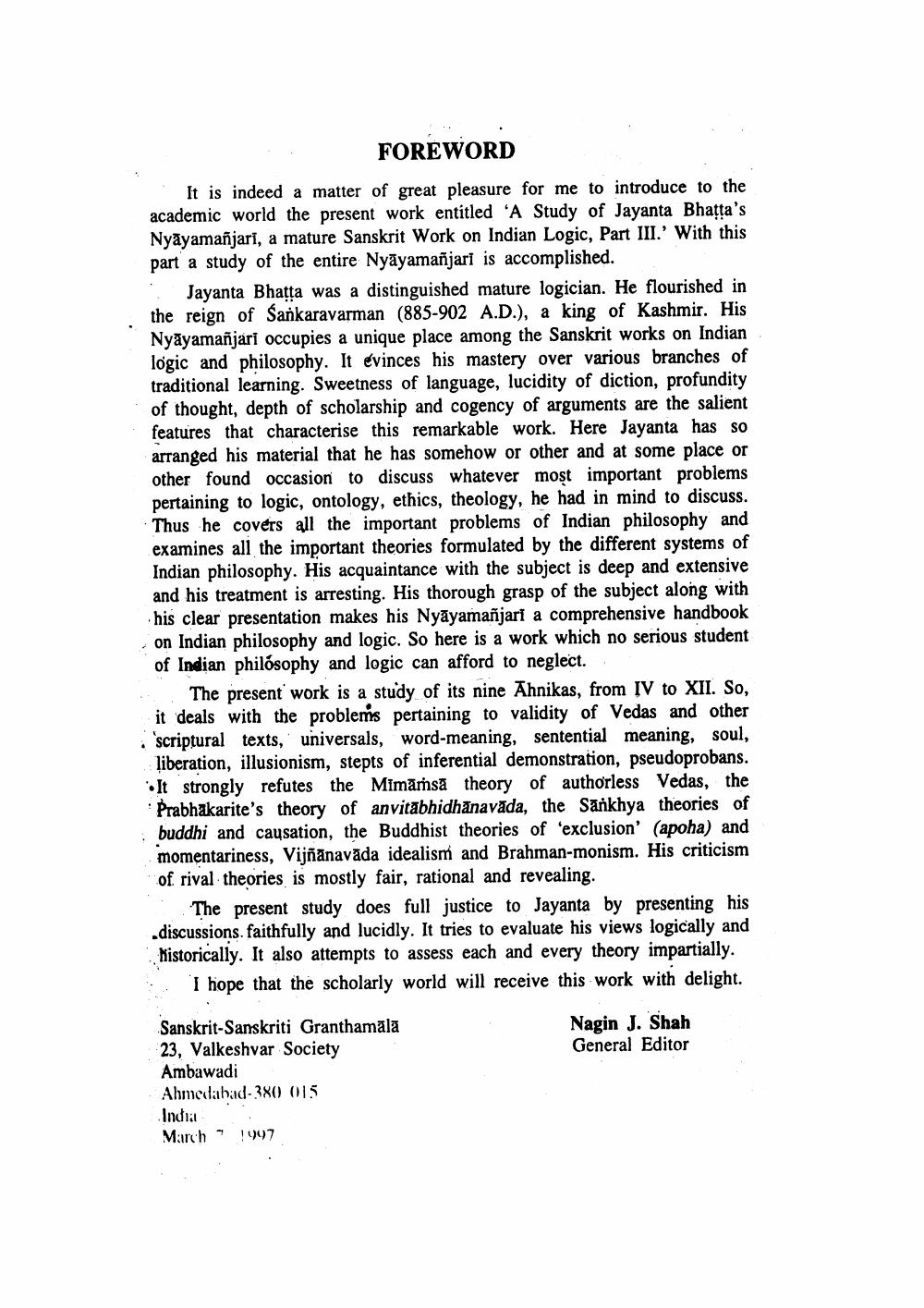Book Title: Indian Logic Part 03 Author(s): Nagin J Shah Publisher: Sanskrit Sanskriti Granthmala View full book textPage 6
________________ FOREWORD It is indeed a matter of great pleasure for me to introduce to the academic world the present work entitled 'A Study of Jayanta Bhatta's Nyayamañjarī, a mature Sanskrit Work on Indian Logic, Part III.' With this part a study of the entire Nyayamañjart is accomplished. Jayanta Bhatta was a distinguished mature logician. He flourished in the reign of Sankaravarman (885-902 A.D.), a king of Kashmir. His Nyayamañjarī occupies a unique place among the Sanskrit works on Indian logic and philosophy. It evinces his mastery over various branches of traditional learning. Sweetness of language, lucidity of diction, profundity of thought, depth of scholarship and cogency of arguments are the salient features that characterise this remarkable work. Here Jayanta has so arranged his material that he has somehow or other and at some place or other found occasion to discuss whatever most important problems pertaining to logic, ontology, ethics, theology, he had in mind to discuss. Thus he covers all the important problems of Indian philosophy and examines all the important theories formulated by the different systems of Indian philosophy. His acquaintance with the subject is deep and extensive and his treatment is arresting. His thorough grasp of the subject along with his clear presentation makes his Nyayamañjarī a comprehensive handbook on Indian philosophy and logic. So here is a work which no serious student of Indian philosophy and logic can afford to neglect. The present work is a study of its nine Ahnikas, from IV to XII. So, it deals with the problems pertaining to validity of Vedas and other . scriptural texts, universals, word-meaning, sentential meaning, soul, liberation, illusionism, stepts of inferential demonstration, pseudoprobans. It strongly refutes the Mimämhsa theory of authorless Vedas, the Prabhakarite's theory of anvitäbhidhänavāda, the Sankhya theories of buddhi and causation, the Buddhist theories of 'exclusion' (apoha) and momentariness, Vijñānavāda idealism and Brahman-monism. His criticism of rival theories is mostly fair, rational and revealing. The present study does full justice to Jayanta by presenting his discussions. faithfully and lucidly. It tries to evaluate his views logically and Historically. It also attempts to assess each and every theory impartially. I hope that the scholarly world will receive this work with delight. Sanskrit-Sanskriti Granthamala 23, Valkeshvar Society Ambawadi Ahmedabad-380 015 India March" 1997 Nagin J. Shah General EditorPage Navigation
1 ... 4 5 6 7 8 9 10 11 12 13 14 15 16 17 18 19 20 21 22 23 24 25 26 27 28 29 30 31 32 33 34 35 36 37 38 39 40 41 42 43 44 45 46 47 48 49 50 51 52 53 54 55 56 57 58 59 60 61 62 ... 226
